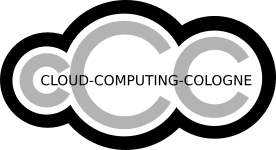Not long ago, a major cloud provider suffered a major outage because of what the company later blamed on a typo. This is not the first or last time that a simple mistake—a configuration error, a poorly-timed software update or a network outage—has caused chaos.
I predict that things will only get more challenging as businesses continue to move to multicloud environments. Businesses need the ability to manage a collection of different cloud-based services as a single unified environment.
Successfully managing the operations of a multicloud environment requires the ability to understand all of the underlying technology that supports the environment. Trying to manually implement a comprehensive management platform is a losing proposition. There are simply too many components: on premises systems, public cloud services, data services, software services, security components, networks and other connected devices.
The emergence of cognitive computing is changing the way organizations can manage their computing environments. A management platform that incorporates cognitive computing creates a framework that continues to learn and change as the overall multicloud environment evolves.
So what does it mean to provide a management and operations platform that relies on cognitive computing? How can cognitive computing help teams better govern their environments and create more consistent, reliable platforms?
Data is the foundation for a cognitive approach to multicloud management. All underlying systems produce large amounts of data about their behavior. The challenge isn’t that teams don’t possess performance data. It’s that there is so much data that uncovering the relevant data points can be very difficult.
The IT operations team is often left holding the bag when something goes wrong in a complex multicloud environment. Each business unit often wants to control its own infrastructure and its own applications. Central IT is tasked with providing overall protection and governance across the enterprise. IT operations has to ensure that workloads—no matter where they operate—are performing according to customer expectations.
The process of bringing operational sophistication to a multicloud environment is not easy. It is can seem impossible to bring predictability to an environment that consists of multiple workloads on multiple deployment models. Simply put, it requires a sophisticated automation approach based on machine learning and cognitive computing. Here are my top three reasons why a cognitive and machine learning approach is the most appropriate to manage a multicloud environment:
Multicloud management requires the ability to ingest and interpret massive amounts of data generated by the elements supported. The system learns from the data based on best practices and optimizes the operations of the environment.
Machine learning algorithms are able to continually optimize the environment so that performance is consistent and predictable. This requires an environment that understands the relationships and the context between all of the elements in the multicloud environment.
The ability to use natural language processing enables developers to determine where problems exist and the best way to take corrective action.
The future is the ability to combine control with freedom. Businesses demand the flexibility and freedom to use the most appropriate application and compute services. An increasingly large number of approaches and tools match the new generation of applications that organizations are developing to support customers. A consequence is that the typical business will use many different on premises and cloud services to meet their objectives.
The business might suffer unless these services, applications, network and data services are predictably managed as though they are one unified environment. It’s clear that an approach that takes advantage of advanced analytics in a cognitive computing framework is a requirement in a multicloud environment.
To learn about IBM Cloud Automation Manger, visit ibm.biz/tryICAM. The first version of IBM Cloud Automation Manager is now available on IBM Bluemix and supports IBM Cloud and other public cloud offerings.
The post Adding intelligence to a multicloud strategy appeared first on Cloud computing news.
Quelle: Thoughts on Cloud
